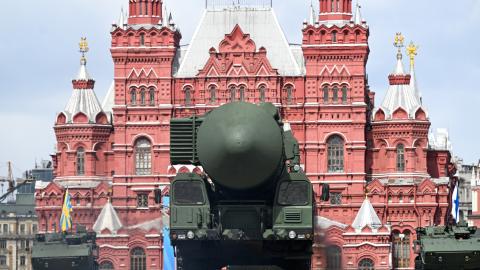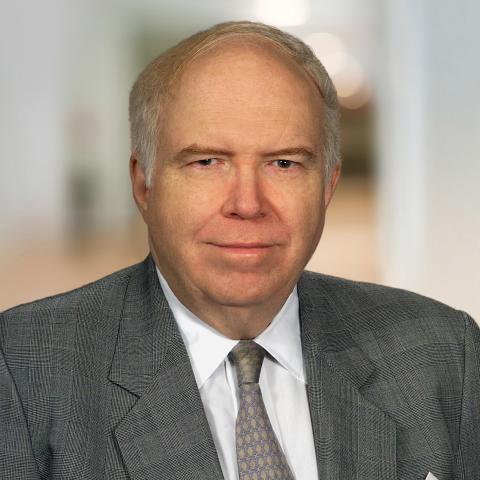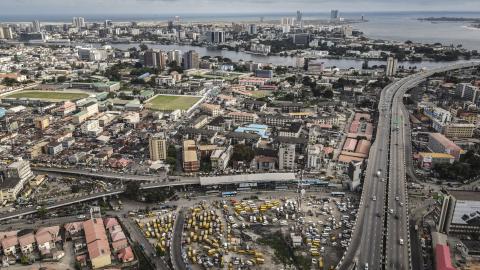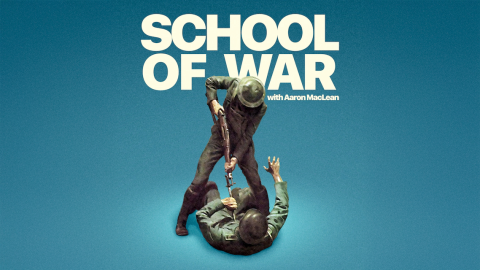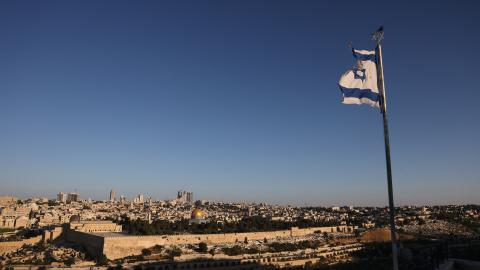JERUSALEM — I am sitting in a deli with Natan Sharansky telling him about my friend Fawaz who thought his book, The Case for Democracy, was a great moral testament. Over the last three days I have been surprised to find that Israelis truly believe the gullible Western press reports that all of Lebanon supports the fanatical Islamic resistance, and so Sharansky is a little startled to hear that there are Lebanese neocons, Arab readers who embraced his message well before George W. Bush did. I explain that this is why I moved to Beirut in the first place, not to cover a war and the destruction of a country, but to watch its rebirth, its re-entry into the democratic fold, and its struggle for independence.
It is very hard to see Lebanon--the region's crowning hope, the Arab world's exception--come to this, the destruction certainly, but also the ugly foundations that the destruction has now laid bare. Walid Jumblatt, the courageous and morally nimble, aristocratic jester of the Cedar revolution is holed up in his ancestral mountain estate. Fouad Siniora, a prime minister who had the support of Lebanese across the political spectrum, all of them thanking their fate to have been blessed after the assassination of Rafiq al-Hariri with such a competent and clear-headed leader now clutching to the grubby clichés of Hassan Nasrallah.
The Lebanese always believed that their political class was largely craven, even Michel Aoun, the patriot who returned after 14 years abroad to make a deal with Hezbollah. But there was also the youth, that unblemished segment of the population that fearlessly took to the streets to demand that Syrian troops leave their country. So maybe there's hope to be found in young Lebanon, even if right now the beautiful girls and boys who draped themselves in the red, white, and green a year and a half ago are suddenly reduced to hysterical children screaming on blogs and blaming everyone who is not Lebanese for their fate.
For me anyway, Lebanon is now a very small place on the map that comes down essentially to Fawaz and his ideas of Lebanon: a free, prosperous, tolerant, and peaceful state where all of its citizens would be allowed to pursue their version of the good life. Fawaz would have liked talking to Sharansky, one of his heroes. But the impossibility of such a meeting, of crossing the border for a cup of coffee, strikes me as what is tellingly sick about Lebanon. It is a country where a person who says he wants peace with his neighbor, not a peace that comes through destruction and elimination, but a real peace, such a person is considered a traitor.
I ask Sharansky if he still believes in Arab democracy. I agree with him that the White House was unwise to focus on elections rather than the slow arduous work of building democratic institutions. But I am not sure that is the only issue; I do not believe that there are many partners for such initiatives.
A week before I arrived in Jerusalem, I was sitting in the Old City of Damascus with Muhammad, the 67-year-old father of a friend, who lived in the United States for two years on the lower east side of New York, where his neighbors in the drug trade thought he was an FBI or CIA agent (an irony he relishes dearly). He left Syria a communist and came back from the States a liberal in love with American ideas. He has written some 30 books on comparative religion and considers himself a free-thinker: "In this part of the world," he says, "how else could I consider other people's ideas as equal and all worthy of the same respect?"
We talked about other free-thinkers, his precursors--dissidents and critics of both religion and the state--and the long line of such intellectuals in Arab history, from the blind 10th century poet Abu 'ala al-Maari to the great 20th century Egyptian writer, Taha Hussein--also blind, and the touchstone of Arab liberalism for close to a century now. With all these heroic figures and a tradition as rich and estimable as the West's, why does Arab liberalism, I asked Muhammad, have to keep starting from scratch every generation? Why, over the course of a thousand years, have the liberals not had any enduring effect on Arab society except in spots? Why, I ask, do the bad guys with the bad ideas keep winning?
Muhammad shook his head and smiled wanly, "Who knows," he said, "I guess it's just where we are right now."
Back in Jerusalem, Sharansky notes that those intellectuals who left the Soviet Union were dissidents, critical of the totalitarian state, and that they won. With few exceptions, such as Fouad Ajami and Kanan Makiya, the Arab intellectuals who leave the Middle East are not liberal. Nor are they critics of the Arab political order. Maybe, for instance, Arab intellectuals who wind up in American academia believe that the Hashemite regime is oppressive, but for them the answer is not more democracy or more liberalism, but more resistance, more of anything like Hezbollah. The real Arab dissidents are generally caught, like Fawaz, in the Arab world.
So where does that leave Washington's democratization project? Sharansky believes that in the long run it's the only option. But that is perhaps a very long run given a millennium's worth of Arab liberalism that has not so far worked. In the meantime, we are seeing another option unfold in Lebanon.
